
Show Me The Numbers – Commission Holding Back on Specifics re Pesticides, Fertilizers and Organics
As the eagerly awaited EU Commission Farm to Fork and Biodiversity strategies are about to be released tomorrow, a battle is on for the specifics. […]

As the eagerly awaited EU Commission Farm to Fork and Biodiversity strategies are about to be released tomorrow, a battle is on for the specifics. […]

This week the European Commission will reveal how it plans to work towards the pesticide reduction targets as set in the Green Deal, via the Farm to Fork strategy and also the Biodiversity strategy. However chemical giant Bayer CropScience has made clear it does not want any binding legislation as part of the new EU Biodiversity Strategy. With specific numbers for reduction in the use of pesticides and fertilizers in the biodiversity strategy in particular, will real targets be dampened down on the 20th May? […]
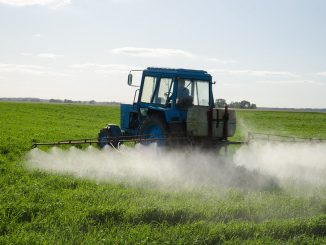
A new peer-reviewed paper has identified systemic failings in Europe’s pesticide risk assessment process. Written by Claire Robinson and a group of experts in law, policy, and toxicology, our paper outlines how these failings could seriously undermine ambitions for sustainable agriculture and a “green recovery” from the COVID-19 pandemic – and proposes a comprehensive agenda for reform. […]
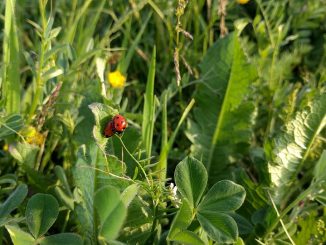
Healthy ecosystems are the foundation for food production, but they are pushed to breaking point by the current system. In the face of existential threats, Farm to Fork needs a coherent vision. Friends of the Earth Europe, WWF, Birdlife Europe, Greenpeace, ClientEarth and Pesticides Action Network weigh in on the European Commission’s Roadmap to food sustainability. […]

The European Commission needs to pull up its socks on pesticides says the European Court of Auditors. More than 10 years since the directive on the sustainable use of pesticides, it still isn’t doing enough to measure and reduce the risks, finds a report released last week. Louise Kelleher has more. […]

Scientists behind a decade-long biodiversity study published, which showed “frightening” declines of insects and spiders in German grasslands and forests, are calling for a “paradigm shift” in land-use policy. […]
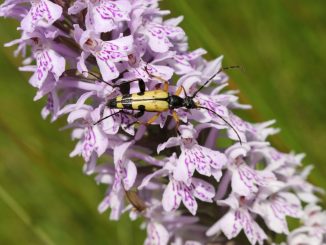
Its Earth Day Monday 22nd and to celebrate we’ve selected our twenty favourite, most appropriate, most thought-provoking and compelling reads to get in the mood. From rewilding to climate change, pesticides bans to the role of livestock in climate-friendly farming, and a gripping personal account of front line action in the Paris COP 21 climate change talks….it’s all here! […]
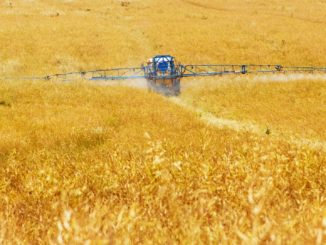
With insect Armageddon and biodiversity collapse making the headlines, pesticides are public enemy No. 1. Scientists are now naming and shaming pesticides as a key driver of biodiversity loss. Even the European Parliament has caught the bug. MEPs insist that the new CAP must do more to shrug off our dependency on agrochemicals. Meanwhile farmers are showing that – with the right supports – instead of scapegoats for biodiversity loss, they can be part of the solution. […]
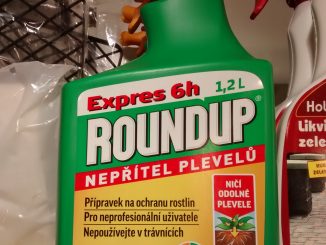
The use of glyphosate has been curtailed in the Czech Republic with a new ban on desiccating crops for human consumption that came into effect on January 1, 2019. Grains and rapeseed are the main food crops affected by the new regulations. But the Ministry of Agriculture has been accused of making a U-turn on a blanket ban on glyphosate previously announced in September 2018. How far will the Czech Republic go in calling time’s up on Roundup? […]

Protein plants and the animals and humans that eat them are in the news this week, as the European Commission and a range of farming and environmental NGOs publish reports and opinions on the matter. A number of organisations reacted positively, but with caveats. So what were the concerns? […]
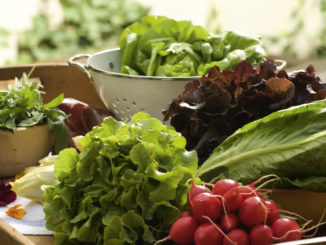
Cancer is an emotive topic, so when a team of French researchers say a higher frequency of organic food consumption was associated with a reduced risk of cancer people will inevitably take note – and try to take apart the study. Meanwhile, Roundup, a tool of conventional farming and land management is in the dock – and loosing – over it relationship with cancer. Oliver Moore reports, adding some broader and historical context. […]

What Brexit will mean for the future of UK and EU food and farming has been the topic of much debate and much uncertainty in the past few months. As the Brexit withdrawal plan is becoming more concrete, so too are the potential opportunities and concerns for the food system. Sharon Treat from the Institute for Agriculture and Trade Policy (IATP) talks us through five key risks. […]

3 neonicotinoids – Bayer’s imidacloprid and clothianidin, and Syngenta’s thiamethoxam – will be banned from all outdoor fields on EU farms within six months. […]

Evaggelos Vallianatos entered the Office of Pesticide Programs of the US Environmental Protection Agency in May 1979. He learned a lot. Here he shares with us some of that wisdom, while also introducing the Anna Feigenbaum book Tear Gas: From the Battlefields of World War I to the Streets of Today. […]

Public places in France – schools, parks, forests, roadsides – are no longer treated with herbicides, while more restrictions are coming in in 2019. Senator Joel Labbé has been the driving force behind these restrictions. ARC2020 has worked with Labbé to help bring his work to the European stage. […]
Agricultural and Rural Convention